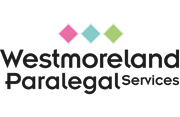So what exactly is a real estate closing?
This is where buyer and seller sit down face to face.
Ideally all parties involved in transaction will attend your real estate closing. If you are financing your purchase, the lender must give us a clearance to close. We provide our buyer the preference of date, time and location.
At closing buyer will bring one cashier’s check payable to the closing or settlement company or wire funds ahead of time. This portion of money must be available for disbursement at closing. Buyer and seller must bring valid photo i.d. to closing, i.e. driver’s license is best. Any charges to seller should be deducted from sale proceeds.
Folks at the closing table may include closer, buyer, seller, realtors, notary public and maybe attorney and/or lender. Your closer will have all closing documents for your transaction. There is no paperless society in real estate closings. There will be many documents for buyer to sign, and typically seller has a few documents to sign. You will want to verify your name is spelled correctly and sign documents exactly as your name appears. Many documents will be notarized for validation and recordation. Your closer can explain closing documents to you as you go through this signing process. If you see any items you don’t understand, now is the time to question them.
Next up, the money end of closing. Your cashier’s check must cover and match monies required from you for closing. We advise to wire the exact amount required for closing to your settlement company one day before closing. Checks may be handed out to any party present and receiving funding listed on settlement/disclosure statement. Seller payoffs are typically handled via overnight deliver or wire transactions.
Seller should deliver to buyer keys to the real estate along with any helpful tips on property. Buyer should verify utility companies have been or will be contacted immediately to transfer accounts.
Congratulations you are now the new owner of this real estate!

